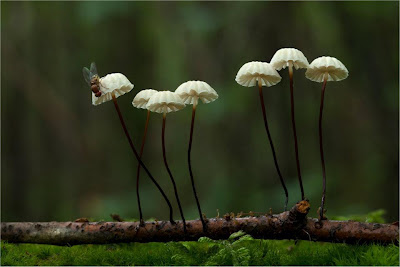 |
| Imagem da Web |
"Nunca deixes ninguém dizer que não podes fazer alguma coisa. Se tens um sonho, tens de correr atrás dele. As pessoas não conseguem vencer e dizem que tu também não vais vencer. Se queres alguma coisa, corre atrás dela."
A quem não viu
este filme, aconselho vivamente. É uma lição de vida, em muitos aspectos. Baseado
numa história verídica torna-se, ainda mais por isso, uma fonte de inspiração,
que nos instiga a não desistir e a acreditarmos em nós mesmos.
Mas quando reli
esta frase, o meu primeiro pensamento não foi nas cenas do filme que mais me
comoveram, e nem apenas na mensagem de incentivo a que corramos atrás dos
nossos sonhos. Ficou a ecoar na minha mente uma parte dela: “As pessoas não conseguem vencer e dizem que
tu também não vais vencer.” Já quando vi o filme esta frase me atingiu com
toda a sua verdade.
De facto,
quantas pessoas nos dizem que não somos capazes, porque vêm essa frase
reflectida no seu próprio espelho…? Por vezes é uma reacção que a elas próprias
passa despercebida. Há dias que quando olhamos ao espelho, não olhamos
realmente, é só um reflexo para ajudar a compor a imagem, não queremos olhar
para além.
Existem outras
ainda que o dizem porque não perdoam, não perdoam que alguém tenha coragem de
perseguir os seus sonhos. Como aos poetas não se perdoa a poesia quando são
vivos, vendem-se mais livros no clube dos poetas mortos.
Acredito que
muitas vezes esta reacção surja sem malícia, somos imperfeitos, humanos.
Mas precisamos
ver para além. Se uma flor pode crescer inesperadamente num tronco deixado
caído no chão… Porque não poderemos nós fazer o impossível…? Quando sabemos, quando sentimos, em cada pequeno nervo, que… é possível!
.-.-.-.-.
"Never let anyone tell you you can’t do
something. If you have a dream, you have to chase it. People can’t win, so they
say you can’t win either. If you want something, run after it.
For those who haven’t seen this movie, I strongly
advise it. It’s a lesson for life, in so many ways. Based on a true story, it
becomes, specialy for that, an inspiration, that drives us not to give up and
believe in ourselves.
But when I read this phrase again, my first thought
was not about the most touching scenes in the movie, and not just about the message
that pushes us to chase our dreams. A part of this echoes in my mind: “People can’t win, so they say you can’t win either.” I remember this hitting me with all it’s
truth, when I saw the movie.
In fact, how many people tell us we can’t do it,
because they see that sentence reflected in their own mirror…? Sometimes this
reaction goes unnoticed even by them. Some days, when we look in the mirror, we
don’t really look, it’s only a reflexion to help tidy the image, we don’t want
to see further.
Some say that because they don’t forgive it, they
don’t forgive someone has the courage to pursuit their dreams. Like the poets
to whom poetry is not forgiven in life, there more books sold in the dead poets
club.
I believe this comes without intent to harm, most of
the times. We are imperfect,
human.
But we need to look further. If a flower can,
unexpectedly, grow in a log left falling in the ground… Why can’t we do the impossible…?
When we know, when we feel, in every little nerve, that…. It is possible!






